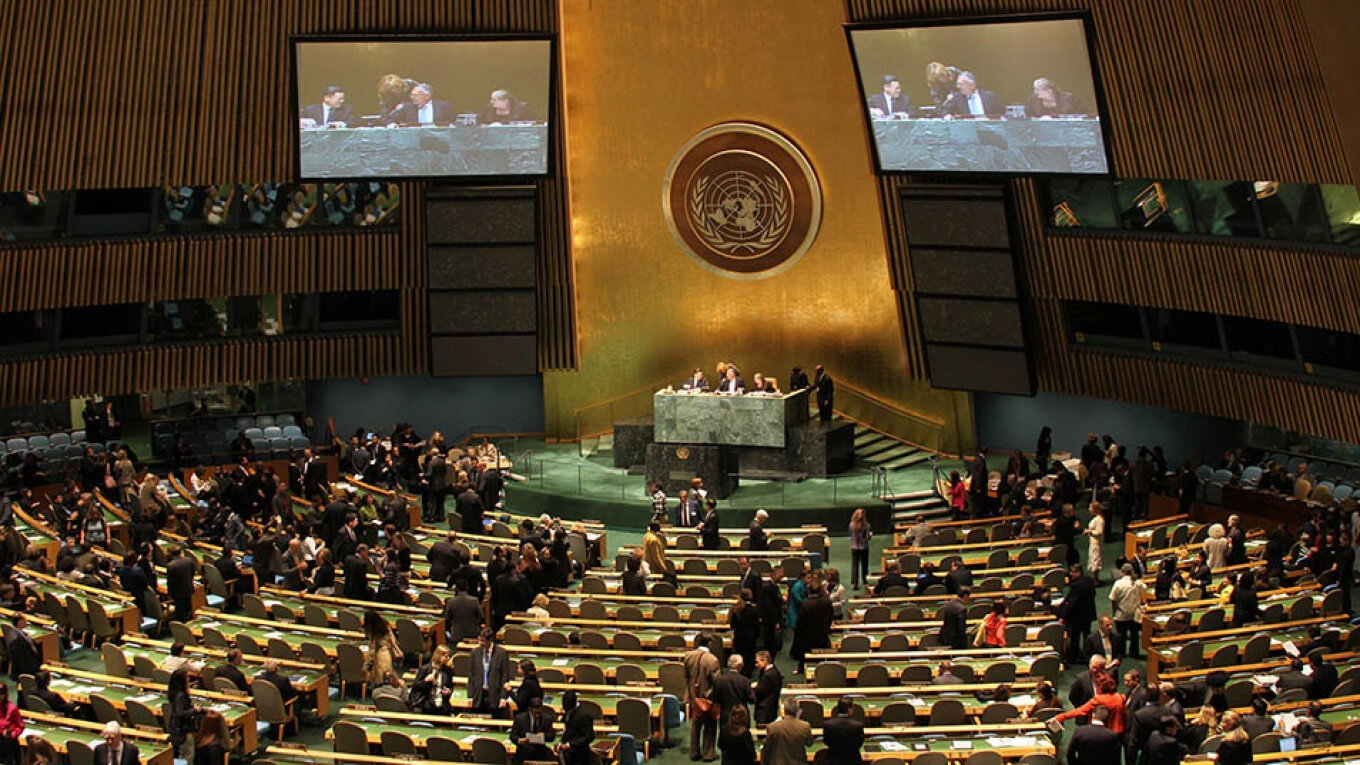The United Nations General Assembly on Monday adopted a resolution calling on Russia to immediately withdraw its forces from Crimea and end the transfer of weapons to Ukraine.
The nonbinding resolution, which passed with a 63-17 vote with 62 abstentions, “urges the Russian Federation, as the occupying power, to immediately, completely, and unconditionally withdraw its military forces from Crimea, and end its temporary occupation of the territory of Ukraine without delay.” It also calls on Moscow to stop the transfer of highly destabilizing advanced weapons systems, “including nuclear-capable aircraft and missiles, weapons, ammunition, and military personnel to the territory Ukraine.”
The measure was supported by introduced by 40 nations, including Britain, France, Germany, the United States, Australia, Canada, Turkey, and the Baltic states. It was, however, opposed by Russia and its supporters, including China, Cuba, Venezuela, Iran, and Syria. The General Assembly has previously passed resolutions on Russia militarizing the Crimean Peninsula, and a year ago passed a resolution seeking human rights protections in the area.
Russia sent its forces to Crimea and annexed parts of the peninsula in 2014, which led to the United States (US), the European Union (EU), and a slew of other nations to impose harsh sanctions on the country. It has also supported separatist rebel groups in eastern Ukraine in a long-running conflict that has killed more than 14,000 people over the last six years. The resolution came exactly one year after the presidents of Ukraine and Russia met in Paris for the first time in an attempt to find a peaceful resolution to the long-running conflict in eastern Ukraine.
Kyiv’s UN envoy, who introduced the text to the Assembly, emphasized that by occupying Crimea, Russia was greatly breaching international law, and threatening “peace and security well beyond the Black Sea region.” The body also condemned Moscow exerting its jurisdiction over nuclear facilities and materials in Crimea, its construction of warships there, and opposed Russia’s conscription of Crimea residents including those with Ukrainian citizenship.
While Ukrainian foreign minister Dmytro Kuleba labelled the measure “a new element of growing legal pressure on Russia,” Russia denounced the “politicised” nature of the text, arguing that it was just another move by Ukraine to distract the international community, even though the people of Crimea had decided their future through a referendum in 2014, in which Crimean authorities announced that more than 95% of voters supported joining Russia. However, the US, EU, along with the UN consider the vote illegitimate, and inconsistent with the Ukrainian constitution and international law.
UN Passes Resolution Urging Russia to Withdraw from Crimea
The nonbinding resolution passed with a 63-17 vote in the UN General Assembly with 62 abstentions.
December 9, 2020

SOURCE: THE MOSCOW TIMES
